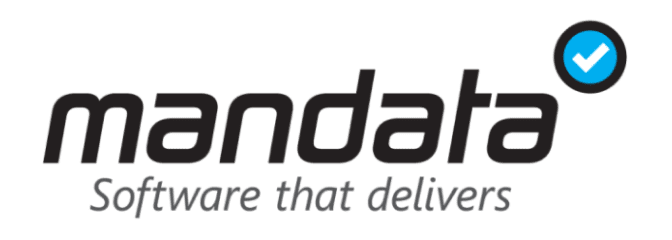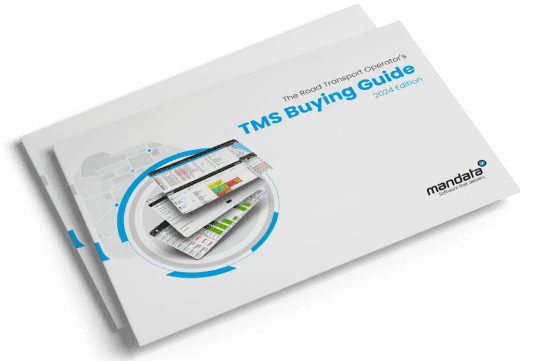9 Benefits of a Transport Management System for Haulage Businesses
In today’s fast-paced world, logistics companies face numerous challenges in managing their transportation operations efficiently. The sheer complexity of coordinating shipments, planning routes, and ensuring timely deliveries can be overwhelming. However, with technologies such as transport management software (TMS), logistics companies have gained a powerful tool to streamline their operations, reduce costs and improve overall efficiency. In this article, we will explore some of the top benefits of using a TMS system and how it can optimise your business processes.
What is a Transport Management System?
A transport management system is a digital software technology that hauliers use to automate day-to-day tasks. It is a logistics software platform that transport operators use to make it easier to plan and carry out the transportation of goods, optimise routes, and improve compliance.
Read more: What is a transport management system?
Here are just some of the benefits of a TMS system.
1) Improved operational efficiency
Transportation management software plays a crucial role in optimising logistics operations. By automating manual tasks, such as order processing, route planning, and load optimisation, TMS software significantly improves operational efficiency. It reduces the need for manual data entry and paperwork, leading to faster and more accurate order fulfilment. With real-time visibility into the entire transportation process, logistics companies can proactively address any issues, reduce delays, and provide better customer service.
A TMS software allows you to move away from paper processes to digital software, improving your business workflow and your customers’ experience. With digital records you can create profiles for your customers, making it easier for transport managers to process repeat orders while bringing down administrative costs. Profiles can contain:
- Key contacts within your customer’s business
- Frequency of deliveries and collections
- Locations and site restrictions
- Rates and history of invoices
- Accurate data in one system
Easy digital searching, instead of having to go through files of paper records, saves time, ensures accuracy of pricing and billing, and makes quick sharing of data throughout your business possible.
Read more: How Transport Management Systems Improve Efficiency in Haulage
Mandata TMS brings greater efficiency for Wyvern Cargo
“We have been using Mandata for several years and originally chose the system because we wanted the operational benefit and flexibility of live load planning. Our previous system was effectively an invoice filing cabinet on a computer, whereas the Mandata TMS provides all-round versatility.”
Simon Sparrowhawk, Operations Manager at Wyvern Cargo
2) Cost savings
One of the primary advantages of implementing transport management software is cost savings. TMS software enables transport companies to optimise routes, consolidate shipments, and reduce empty miles. By maximising vehicle utilisation and minimising fuel consumption, companies can significantly lower transportation costs. Additionally, a TMS system provides valuable insights into driver performance, allowing logistics companies to negotiate better rates and eliminate unnecessary expenses. By streamlining processes and reducing manual intervention, a TMS frees up resources, enabling companies to focus on higher-value tasks.
Read more: The Impact of Transport Management Systems on Cost Savings and Profitability
Skelcher Express saves 30 working hours a week invoicing deliveries via their TMS
“Invoices are now going out to our customers much quicker. This allows us to provide better services to customers who want weekly invoicing. In general, we’re seeing more streamlining and automation of processes, which is delivering time and cost savings.”
Robert Fox, Transport Manager at Skelcher Express
3) Improved cash flow through invoice factoring
A transport management system allows for electronic invoicing and processing. This simplifies accounting processes and lets accounting staff to focus solely on exceptions. A good TMS will also connect with third-party applications such as accounting software (like Sage, Quickbooks and Xero) and enterprise resource planning (ERP) programs, so you can transfer information automatically and reduce duplication – allowing you to accelerate your invoicing and improve your cash flow as it supports your ability to factor your invoices and collect cash.
Using an electronic proof of delivery (ePOD) app that integrates with your transport management system (TMS) allows real-time status updates of jobs and speeds up proof of delivery returns.
Read more: The Benefits of Electronic Proof of Delivery (ePoD) in Road Haulage
Elddis Transport improve load fill, utilisation and traceability with Mandata
“Mandata’s products have helped us to reduce numerous duplications of administration within our transport office. They’ve also reduced the risk for error, and they’ve generally improved the communication with both our drivers and our customers.”
Richard Toner, Commercial Director at Elddis Transport
4) Efficient route planning
Route planning is a critical aspect of transportation management. Inefficient routing can result in wasted time, increased fuel consumption, and unnecessary expenses. Transportation management software simplifies route planning by considering various factors such as distance, cost per mile, traffic conditions, vehicle capacity, empty miles, and delivery windows. By reducing travel time and minimising detours, logistics companies can improve on-time deliveries, reduce fuel costs, and increase overall productivity.
Read more: How Transport Management System Simplifies Route Planning in Road Haulage
A.W. Jenkinson Transport improves load allocation and route planning
“Mandata TMS gives an accurate real time picture of all planned routes including empty legs between loads enabling us to identify and address any vehicles carrying empty trailers over excessive miles.”
Dave Lindop, Finance Director at A.W. Jenkinson
5) Enhanced visibility of operations via tracking and telematics
With a TMS system, you and your customers can keep track of where vehicles and consignments are every mile of the way. This provides real-time visibility and reduces the need for customers to phone your office, or for you to contact the driver for updates. A good TMS will even alert interested parties when a delivery is late or has not arrived at its destination. Knowing when there is a service disruption allows customers to make necessary arrangements or adjustments immediately. Tracking data can also be used to see how long it takes to complete a route in order to develop more effective route schedules.
When telematics information is fed from your vehicles to a TMS software, you can monitor driver performance. This helps you to identify areas where driver behaviour is not meeting expectations and make more informed decisions to increase efficiency. You can also use telematics to monitor drivers’ hours and see whether a driver is available for more work, or whether they are required to have a break or rest day.
Read more: How Transport Management System Boosts Visibility in Transport Operations
Millett-Kirkham gains greater visibility with Go and electronic POD software
“The Mandata Go TMS enables our planners, in particular, to see what’s happening across the business on a daily basis. This helps us to be far more responsive, driving up quality standards in the process.”
Owner, Millet-Kirkham Ltd
6) Better inventory management
Transport management software integrates seamlessly with warehouse management systems, enabling improved inventory management. With real-time visibility into inventory levels, logistics companies can optimise stock levels, reduce carrying costs, and prevent stockouts or overstocking. By synchronising transportation and inventory management, a TMS system helps companies achieve better supply chain visibility and improves overall inventory accuracy. Accurate inventory data ensures timely order fulfilment and reduces the risk of lost sales or excess inventory holding.
Read more: How Transport and Warehouse Systems Can Work Together
7) Improved customer service
In today’s competitive market, providing exceptional customer service is crucial for logistics companies. Transport management software enables companies to offer a higher level of service to their customers. With real-time tracking and visibility into shipment status, companies can provide accurate and timely updates to their clients. TMS also facilitates efficient communication with customers, enabling them to track their shipments, request changes, and resolve any issues promptly. Improved customer service leads to higher customer satisfaction, repeat business, and ultimately, a competitive edge in the market.
A TMS delivers convenience for your customers and for you. Simpler and easier processing of orders and transparency of progress eliminate uncertainty and queries. Increased efficiency frees up time and improves timeliness of deliveries. Together, these benefits help you to build stronger trust relationships with your customers.
Read more: How Transport Management System Helps Enhance Customer Service
Pallet specialist B & M Pallets enhances customer service with GoPlus
“We are always on the lookout for ways to further improve customer service, which is why we recently upgraded to GoPlus. On top of all the benefits of Mandata Go, it enables us to provide our customers with accurate ETAs. I really like the fact that this feature is customisable so you can set your own parameters for when and how these customer notifications are sent out.”
David Hunter, transport manager at B&M Pallets
8) Improved safety and compliance
Safety and compliance are critical aspects of haulage operations. Hauliers must comply with various regulations and laws related to vehicle maintenance, driver qualifications, and driver hours. Failure to comply can result in penalties, fines, and legal liabilities. Transport management software helps companies stay compliant by automating the process of generating required documents, such as waste transfer notes and bills of lading. A TMS also helps ensure adherence to regulations regarding driver hours, vehicle maintenance, and safety standards. By automating compliance processes, logistics companies can avoid costly errors and ensure smooth operations.
Read more: How Transport Management System Help Hauliers Stay Compliant
9) Data Analytics and Reporting
Data and analytics are essential for managing haulage operations effectively. A TMS with integrated tracking can provide hauliers with real-time data on the status of vehicles, consignments, and drivers, enabling you to make informed decisions quickly. A TMS also provides historical data on haulage operations, allowing you to identify trends and patterns and make strategic decisions based on this data.
Transport management software has become an indispensable tool for logistics companies striving to improve operational efficiency, reduce costs, and enhance customer service. By automating processes, improving route planning, and providing real-time visibility into operations, a TMS helps companies to stay ahead of the competition. As the logistics industry continues to evolve, adopting transport management software will become increasingly essential for companies who want to thrive in a highly competitive market.

